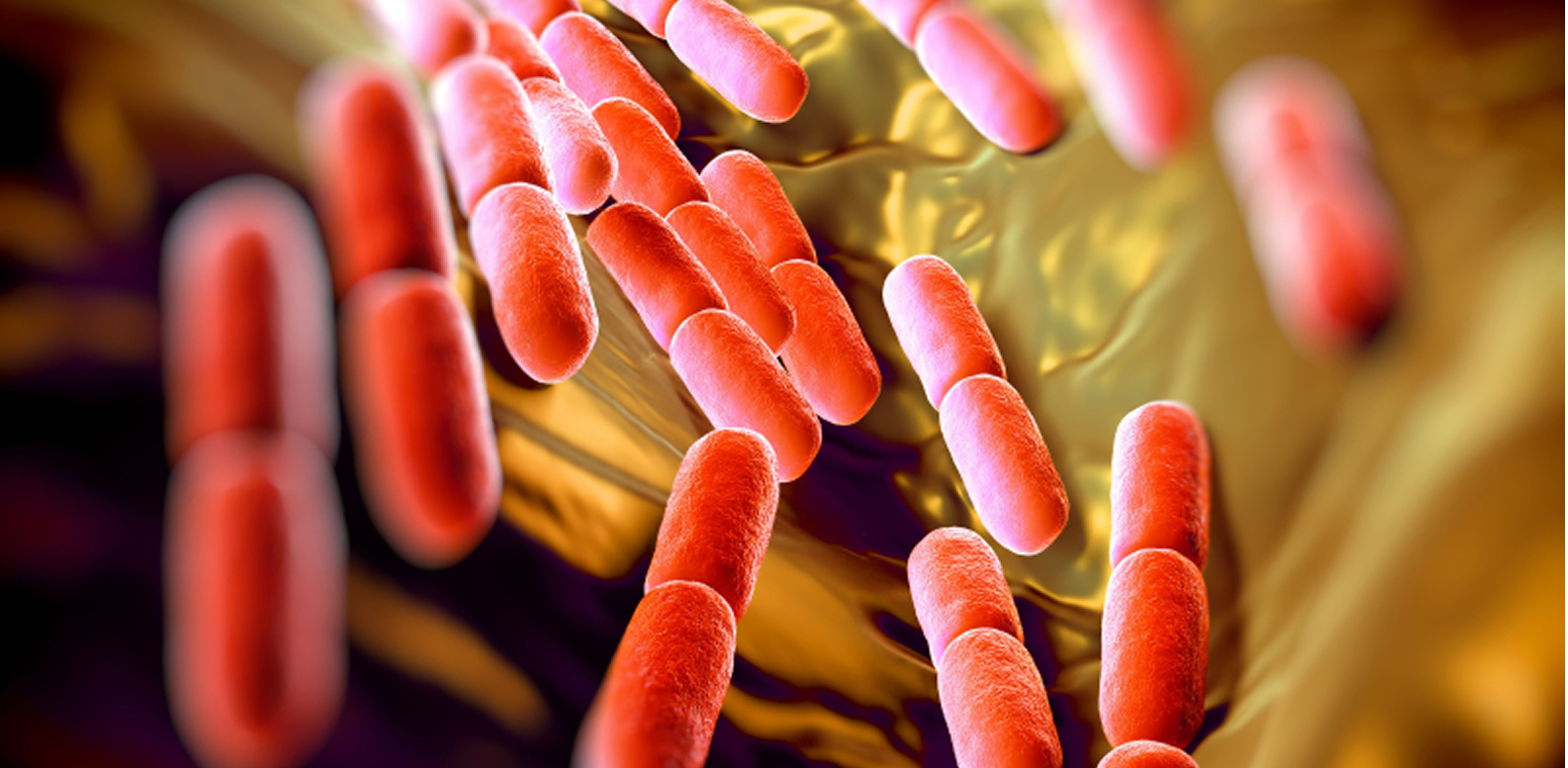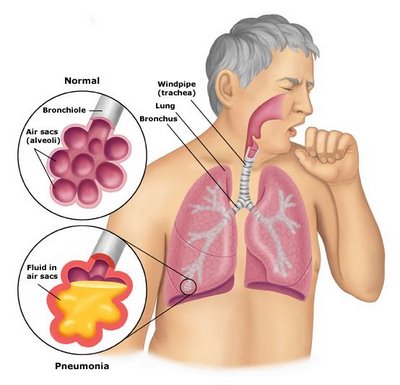What Is Pneumonia?

Pneumonia is an inflammation of the lung, usually caused by an infection. Three common causes are bacteria, viruses and fungi. You can also get pneumonia by accidentally inhaling a liquid or chemical. People most at risk are older than 65 or younger than 2 years of age, or already have health problems.
If you have pneumonia, you may have difficulty breathing and have a cough and a fever. A physical exam and history can help determine if you have pneumonia. Chest x-rays and blood tests can help determine what is wrong. Treatment depends on what made you sick. If bacteria are the cause, antibiotics should help. Viral pneumonia may get better with rest and drinking liquids.
Preventing pneumonia is always better than treating it. The best preventive measures include washing your hands frequently, not smoking, and wearing a mask when cleaning dusty or moldy areas. There is a vaccine for pneumococcal pneumonia, a bacterial infection which accounts for up to a quarter of all pneumonias.

How Pneumonia Is Treated.
Treatment for pneumonia depends on the type of pneumonia you have and how severe it is. Most people who have community-acquired pneumonia—the most common type of pneumonia—are treated at home.
The goals of treatment are to cure the infection and prevent complications.
General Treatment
If you have pneumonia, follow your treatment plan, take all medicines as prescribed, and get ongoing medical care. Ask your doctor when you should schedule followup care. Your doctor may want you to have a chest x ray to make sure the pneumonia is gone.
Although you may start feeling better after a few days or weeks, fatigue (tiredness) can persist for up to a month or more. People who are treated in the hospital may need at least 3 weeks before they can go back to their normal routines.
Bacterial Pneumonia
Bacterial pneumonia is treated with medicines called antibiotics. You should take antibiotics as your doctor prescribes. You may start to feel better before you finish the medicine, but you should continue taking it as prescribed. If you stop too soon, the pneumonia may come back.
Most people begin to improve after 1 to 3 days of antibiotic treatment. This means that they should feel better and have fewer symptoms, such as cough and fever.
Viral Pneumonia
Antibiotics don't work when the cause of pneumonia is a virus. If you have viral pneumonia, your doctor may prescribe an antiviral medicine to treat it.
Viral pneumonia usually improves in 1 to 3 weeks.
Treating Severe Symptoms
You may need to be treated in a hospital if:
1. Your symptoms are severe
2. You're at risk for complications because of other health problems
If the level of oxygen in your bloodstream is low, you may receive oxygen therapy. If you have bacterial pneumonia, your doctor may give you antibiotics through an intravenous (IV) line inserted into a vein.
How Can Pneumonia Be Prevented?
Pneumonia can be very serious and even life threatening. When possible, take steps to prevent the infection, especially if you're in a high-risk group.
Vaccines
Vaccines are available to prevent pneumococcal pneumonia and the flu. Vaccines can't prevent all cases of infection. However, compared to people who don't get vaccinated, those who do and still get pneumonia tend to have:
Milder cases of the infection
Pneumonia that doesn't last as long
Fewer serious complications
Pneumococcal Pneumonia Vaccine
A vaccine is available to prevent pneumococcal pneumonia. In most adults, one shot is good for at least 5 years of protection. This vaccine often is recommended for:
People who are 65 years old or older.
People who have chronic (ongoing) diseases, serious long-term health problems, or weak immune systems. For example, this may include people who have cancer, HIV/AIDS, asthma, or damaged or removed spleens.
People who smoke.
Children who are younger than 5 years old.
Children who are 5–18 years of age with certain medical conditions, such as heart or lung diseases or cancer. For more information, talk with your child's doctor.
Influenza Vaccine
The vaccine that helps prevent the flu is good for 1 year. It's usually given in October or November, before peak flu season.
Because many people get pneumonia after having the flu, this vaccine also helps prevent pneumonia.
Hib Vaccine
Haemophilus influenzae type b (Hib) is a type of bacteria that can cause pneumonia and meningitis (men-in-JI-tis). (Meningitis is an infection of the covering of the brain and spinal cord.) The Hib vaccine is given to children to help prevent these infections.
The vaccine is recommended for all children in the United States who are younger than 5 years old. The vaccine often is given to infants starting at 2 months of age.
Other Ways To Help Prevent Pneumonia
You also can take the following steps to help prevent pneumonia:
Wash your hands with soap and water or alcohol-based rubs to kill germs.
Don't smoke. Smoking damages your lungs' ability to filter out and defend against germs. For information about how to quit smoking, go to the Health Topics Smoking and Your Heart article. Although this resource focuses on heart health, it includes general information about how to quit smoking.
Keep your immune system strong. Get plenty of rest and physical activity and follow a healthy diet.
If you have pneumonia, limit contact with family and friends. Cover your nose and mouth while coughing or sneezing, and get rid of used tissues right away. These actions help keep the infection from spreading.